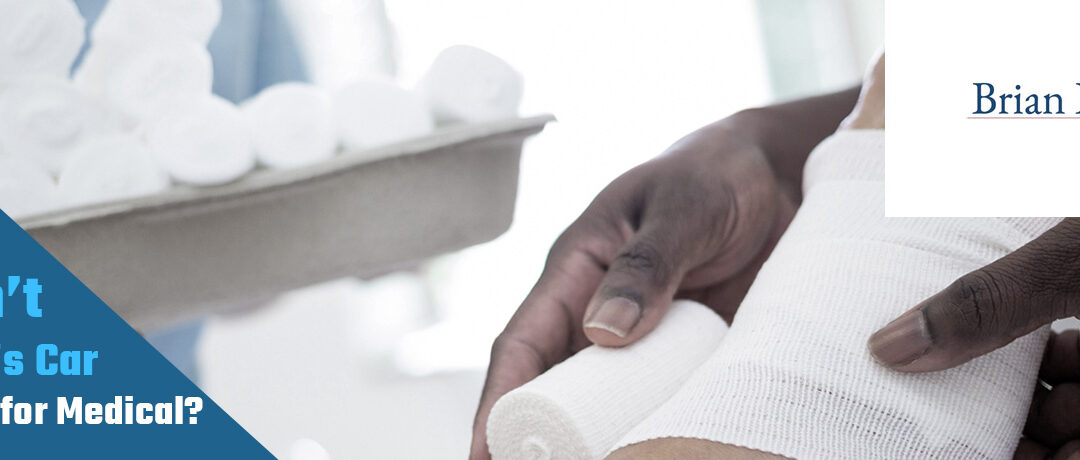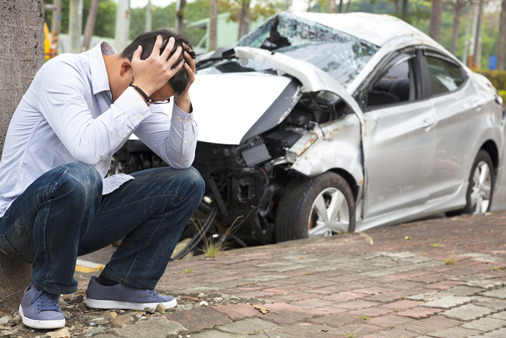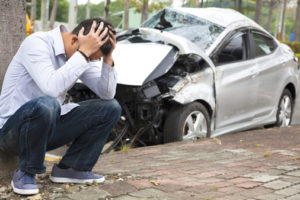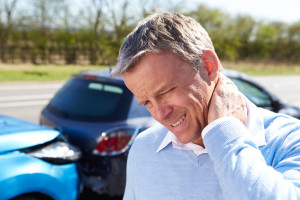
by | | Motor Vehicle Accident
Why won’t the other driver’s car insurance pay my medical bills?
Vehicle accidents can cause both physical and emotional damage and car insurance may not cover the repairs. Car insurance often pays well after treatment which means that bills and collection calls may put a strain on you before you have the ability to fix it. Brian Elston Law is well-versed in personal injury involving vehicle accidents and is ready to guide you through what you need to know — Contact us today.
Here’s the scenario:
– Your hit by another driver in a car accident
– The accident was not your fault
– You go to emergency room, or follow up with your doctor
– You tell them you were in a car accident
– Other driver’s insurance company admits fault
– You start receiving medical bills in the mail
– You call and tell the other driver’s insurance company. Other driver’s insurance company says they’ll take care of it
– Collection letters, from Revclaims, First Point, or Bull City for example, start to come in the mail
If you weren’t at fault, why are they asking you to pay for medical bills?
Unfortunately, car insurance doesn’t operate like health insurance. Generally speaking, car insurance companies do not pay for the injured-driver’s medical expenses as they are incurred. Instead, they make one lump sum payment, typically after the injured driver is through treating. This can put a real mental and financial strain on the driver who’s already hurt.
However, there are things that can be done to ensure that an injured driver has access to medical care. Accessing a driver’s “Medpay”, as explained in an earlier blog post, may provide monetary relief to an injured driver. A letter from an attorney notifying the medical provider about the situation and agreeing to protect the provider’s “lien” may allow an injured driver to continue to treat without having collection agencies chase after them.
If you are receiving collection letters from medical providers when you were in a motor vehicle accident that was not your fault, contact my office and we can discuss your legal rights and options.
by | | Uncategorized
I was hit by a drunk driver, does that make a difference in my case?
Yes. If you were hit by a drunk driver, then you may be entitled to recover “punitive damages.” Punitive damages can be awarded when the other driver’s actions were to such a degree, they can be classified as carelessness and recklessness, more than just ordinary negligence. Courts have held that the intentional act of driving while impaired is sufficiently reckless to warrant punitive damages. Ivey v. Rose, 94 N.C.App. 773, 776, 381 S.E.2d 476, 478 (1989).
However, punitive damages are not automatic. There has to be other circumstances beyond mere intoxication in order to award punitive damages. Howard v. Parker, 95 N.C.App. 361, 365, 382 S.E.2d 808, 810 (1989).
If you were hit by a drunk driver, or a driver that was charged with DWI/DUI, contact my office to review your case to see if you could be entitled to punitive damages.
What if you were hit by a driver that was drinking, but not charged with driving while impaired, could you be entitled to punitive damages?
Yes, but it depends on the circumstances. Take a look at the cases below to get an idea of what cases an a court would allow a jury to consider the issue of punitive damages.
- Driver fell asleep while driving and did not wake up until after his vehicle rear-ended victim’s car. The defendant driver conceded that he had consumed two beers and taken three prescriptions drugs prior to the incident. After the crash, the defendant driver went to a nearby house where he called the police. The police picked up the defendant and returned him to the scene and the state trooper gave defendant an Alco-Sensor test, which indicated defendant’s blood-alcohol level was below the legal limit. The Court of Appeals allowed the issue of punitive damages to go forward. Byrd v. Adams, 152 N.C. App. 460, 462, 568 S.E.2d 640, 642 (2002).
- Driver caused a collision after consuming two twelve ounce beers and fled the scene to avoid taking the Breathalyzer. Driver spent the entire night at a hotel before contacting police, and no blood alcohol content was ever obtained. Court of Appeals allowed the issue of punitive damages to go forward. Eatmon v. Andrews, 161 N.C. App. 536, 588 S.E.2d 564 (2003).
If you were hit by a driver that was drinking, contact my office and we can discuss whether you may be entitled to punitive damages.

by | | Motor Vehicle Accident
No one wakes up in the morning prepared for an auto-accident. Take a look so you know what to do in a car accident.
What should I do after a car accident?

What should I do after a car accident?
1) Stop your car. Even if you think that the accident was minor, you need to stop to make sure that anyone involved and/or their car is okay. Leaving the scene of an accident, even a minor one, can have serious consequences.
2) If there is any damage to a vehicle or anyone involved, call 911 or ask someone to call 911 to report the accident and request help, either the police and/or an ambulance. If you are involved in a hit and run, you will likely need the police report to send to your insurance company.
3) Do not leave the scene or move your vehicle until police/ambulance have arrived. If for some urgent reason you have to move your vehicle, take pictures of the scene with your smart phone before moving the vehicles. As the saying goes, a picture is worth a thousand words. Get names of any witnesses and exchange driver information with the other driver (name, address, insurance company).
4) When the police and/or medical assistance arrive, say exactly what happened. If you do not know what happened, tell the officer that you are unsure. Do not guess or speculate. Even if you think that you’ll eventually be okay, tell the officers and/or medics if you are in any amount of pain or discomfort. If there are witnesses around, make sure that they say exactly what happened.
5) You should go to the emergency room if you are injured. Even if you feel that you will likely be okay, you should get checked out by a physician so they can do a full evaluation to rule out any injuries. Are your medical bills covered by the other motorist’s insurance? Read this article for more information.
6) Take pictures and keep your receipts. Once you are released from the hospital, you may be prescribed some medicine to help with the pain. If you fill the prescription, be sure to keep your receipt. If you are in a brace or cast, take pictures. In addition, over the next couple of days, bruising may develop. Be sure to take pictures of the bruising.
7) Contact your insurance company and report the accident. Even if the other driver’s insurance is at-fault, you should still notify your car insurance. You may have med-pay, which I’ve previously discussed in prior posts.
8) Contact an attorney. Nowadays, a personal injury attorney will provide a free consultation with no obligation. An experienced personal injury attorney will be able to walk you through the next steps. I tell my clients that while this may be their first car accident, its not mine.
As the saying goes, knowing is half the battle. Please give me a call if you have any questions or been injured a motor vehicle accident.
by | | Uncategorized
What is Med Pay?
One of the first questions that I ask in talking with someone that has been involved in a motor vehicle accident is whether or not they have “med pay” under their own car insurance policy. The reason why I ask is because, generally speaking, payment under a “med pay” can be processed very quickly and help individuals while they are waiting on the at-fault driver’s insurance company to provide answers to any liability or damage issues.
![med pay personal injury attorney asheville nc]()
Med pay is short for medical payments, and pays medical expenses for its insured and any passengers injured during an accident or auto-related injury. It does not come included in most auto policies, but it is relatively inexpensive to add. To find out whether or not you have med pay, it will be listed on the declaration page of an insurance policy. Med pay amounts vary, and the ranges are usually $500 to $5,000 per policy per accident.
When can you ask for Med Pay?
Generally speaking, if you are involved in a motor vehicle accident, you should notify your auto-insurance company and request the “med pay.” Most insurance companies require a copy of the medical bill and then will reimburse you or the medical provider for the expense.
The other driver was at fault, so why should I ask for my own medpay?
One of the misconceptions about motor vehicle accidents is that if the other driver is at fault, they’ll immediately pay for the medical bills. Unfortunately, another driver’s car insurance does not operate like health insurance, or process medical bills upon receipt. Instead, the at-fault driver’s insurance is going to make one lump-sum payment, typically when the injured party is done treating. This can take months, and in the meantime, medical bills start piling up.
Med pay, on the other hand, can be quickly processed and provide some financial support while the at-fault driver’s insurance company processes the claim.
So do yourself and your family a favor; check with your insurance agent about adding or increasing your “Med Pay.”
*Med pay differs from policy to policy and may not disbursed in certain circumstances. The above is intended to be informational only, and not construed as legal advice. If you have any questions, please do not hesitate to contact my office.




